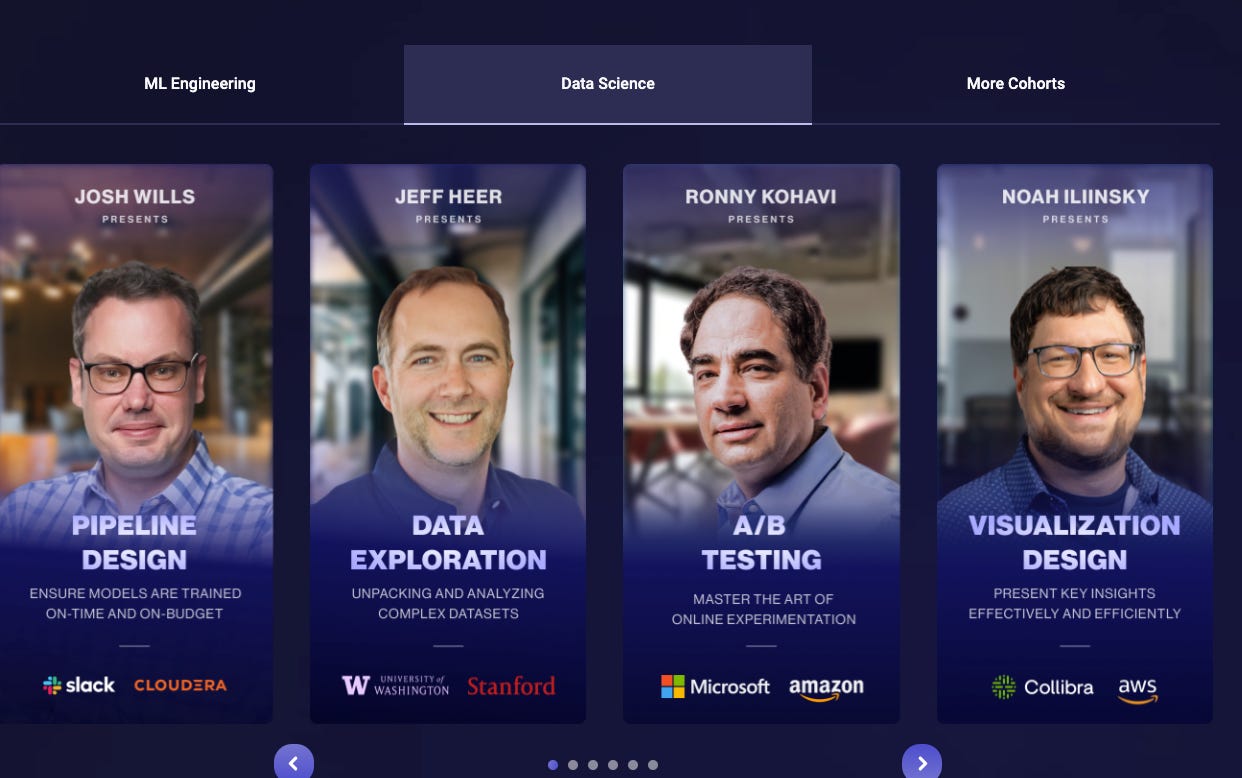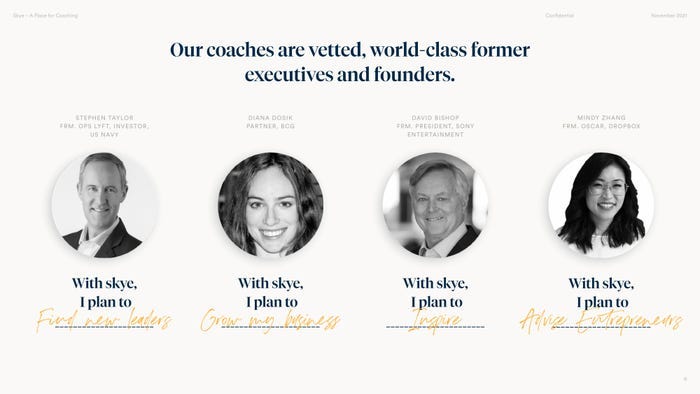The Rise of Career Accelerators
How To Explore, Elevate, and Change Careers In the Modern Workplace
A few months ago, I shared some initial research on 6 trends in the professional development landscape, targeted toward helping business leaders and L&D professionals better understand the options and opportunities to improve upskilling, learning, engagement, and ultimately performance in their organization.
These trends highlight a growing and urgent need - in a constantly evolving workplace, we need career accelerators to stay relevant, fresh and employable. Career accelerators are learning+training+education experiences that help us get to a new or desired career outcome in a fast manner.
Traditionally, college was the career accelerator, and for college degree holders, the only career accelerator you needed for your 40-50 year working professional life, but the “4 years of college 40 years of work” mental model in today’s environment no longer applies.
After founding MBASchooled in 2014, I’ve found myself in lots of conversations debating the value and merit of the MBA degree. So it was timely to come across this debate about the merits of an online MBA, and if it will threaten the traditional MBA.
Whenever I am asked about the value of the MBA degree, I often talk about how I see the MBA as a career accelerator - The program and experience will get you to a desired career outcome faster, or to one that you could not have gotten on your own. The changing world of work, digitization of learning, new innovative learning offerings and the individual desire (urgent need?) for continuous and new career opportunities put career accelerators front and center.
The second point I often make about the MBA is that while it is a career accelerator, the MBA is certainly not the cheapest one. In some cases, it also is not accessible, either due to price (too expensive) or time commitment (not everyone has 2 full years to take off for a full-time MBA) But the good news, is that as some of my research highlights, there are a plethora of other career accelerators out there that can help employees do their jobs better, or find better jobs that they can do.
Today, I want to take a stab at highlighting a few of these trends, and provide some examples of how they impact each individual learner/employee and how you might use these to uplevel or advance in your own career.
#1)The Fractional MBA
The MBA is a fantastic career accelerant. But it is not the only one, and it’s not the cheapest nor most accessible. This is changing as programs like the University of Illinois and their iMBA offer more accessible opportunities. Furthermore, MBA Programs, especially full-time ones, offer a suite of benefits (e.g., in-person, networking, and community) that not everyone needs, nor has the time for. However, some of the elements of the MBA are still attractive and useful for employees, if they were only packaged or delivered in a different way.
Enter what I call the “Fractional MBA” - these are snackable/shorter learning programs (online+virtual) that provide learning+training to uplevel professionals in specific fields, functions or topics.
An example of this is the Morning Brew Accelerator (MB/A) - While Morning Brew started a newsletter, they spun up an Education offering to continue serving and meeting the needs of their millions of subscribers. Their first program is something called the MB/A (Morning Brew Accelerator) This 8 week online program gives professionals a chance to uplevel critical business skills.
I spoke to Karen Hebert Maccaro, the GM of Learning Brew about the offering and she said the feedback on it has been overwhelmingly positive due to the interactive and immersive learning elements, relevant and up to date curriculum, subject matter expertise of instructors and ability for students to form social connections.
Recently, I came across a review of the program from a former student, who gave some overwhelming reviews. Highlighting a few comments:
This program is for ambitious professionals who want to grow their careers, make authentic connections and work on core business competencies in an interactive environment.
and
I think I’d say my expectations were thrown out the door during the first Cohort Collisions event, followed by a meet-and-greet with my weekly board group, and then a super interactive Lunch & Learn with one of Morning Brew’s featured staff-people who had interesting things to say about their career.
and
I had a lot of fun being innovative and creative (two hallmark skills to be working on!) during my DD group projects, and felt like no one could possibly feel “left out” because there were so many ways to contribute, despite our backgrounds, ages, fields of work and special skills.


Source: Learning Brew Twitter
What’s unique about the Fractional MBA is that they are coming up from lots of different sources and companies. While an MBA is an accredited degree from a university, Morning Brew is a media company that wants to educate its readers. Furthermore, there are plenty of other types of companies out there in this space.
Source: Sphere’s Website
Another example of this is a company called Sphere (formerly Scholarsite) - Sphere takes experts in their fields and gives them a platform to teach through cohort learning. Very much aligned with Section4’s model (they are even backed by Scott Galloway) their instinct is to find the best, smartest and most trusted talent, and then to give them a platform to each topic that are of interest and relevance to professionals. As you can see from the image, they’ve got some deep domain experts teaching classes on specific and targeted topics.
They recently announced a Seed Round of funding and hope to expand beyond just their initial group of instructors, and also plan to start selling directly into enterprises. It would not surprise me if they start selling bundles of seats or courses on their platform directly to companies in bulk amounts.
The interesting thing about this, is that it comes back to trust, credibility and expertise - if you want credibility and expertise, who do you trust to get it from? Do you want it from someone who has done research on data science and AI, or the woman who built data science and machine learning product teams at a scale-up tech company? Is the newsletter you go to each day for your source of information, is it from your college, or is it from a company that brings in experts in their niche to teach you? This is something that Schools will have to grapple with, if they want to find ways to engage their alum base in lifelong learning.
#2) Coaching Becomes Corporate Friendly
If you talk to world class performers across fields like sports, music, and entertainment, most will tell you that they spend more time off the field or off the screen practicing and preparing than they do on the field. Tom Brady plays 16 Sunday’s a year, but probably practices 5x that. Despite this, for some reason, the knowledge worker corporate workplace is the only place where spending time practicing off the field is a detriment to productivity or time on the field.
This is starting to change. More and more companies are seeing the value of coaching employees, not just executives or high-level leaders. Second, more and more companies are coming up with innovative ways to deliver personalized coaching (e.g., executive, leadership, and career) and coaching at scale, and to do it in an efficient way.
Sounding Board, not only matches coaches with clients using a proprietary matching tool, but it also takes care of the workflows, logistics, and reporting that come with it. Like many other SaaS products, they also provide analytics and data which helps companies get confidence around ROI and efficacy. (Listen to Christine tell her the story here)
Finally, barriers to finding and selecting a coach are starting to lower. When I started as a leadership coach back in 2014, I found many people were hesitant or weary to sign on the dotted line because they weren’t aware of what it was or what it was like, or they were concerned with the lack of details on a coach. Coaching has gained much stronger brand awareness, and some of these platforms and companies make it easier for coaches and their clients to get matched, either because of having a platform of coaches available to choose from (scalability) or by pre-vetting and selecting the right types.
Source: Skye’s Fundraising Deck
For example, Skye, founded by Jessica Wolf who went through her own challenges in trying to find the right executive coach recently raised a 1.6M seed round to make it easier to get access to coaching for everyday consumers(namely executive and lifestyle) Through a monthly subscription, individuals can get matched with a coach based on their needs and goals, from one of the hand selected coaches on Skye’s platform.
While Skye is taking a more consumer-based approach and branching outside of topics traditionally covered in the corporate workplace, work is very much a part of life and vice versa.
Conclusion- We’ll All Need Career Accelerators
When I graduated business school, I knew that just because I graduated didn’t mean that I wasn’t going to need to stop learning. For most of us, the current job or role we’re in is not going to be the last one.
Furthermore, for many of us, this current career, function, or industry may not be our last one. Career accelerators are the fuel you need to help you navigate the changing world of work and your own professional development. In a workplace that is undergoing continous and constant change, it’s not a bad thing to have.
Note: If you are doing coaching, taking a course, or engaging in a career accelerator of any kind I would love to hear how it is going







